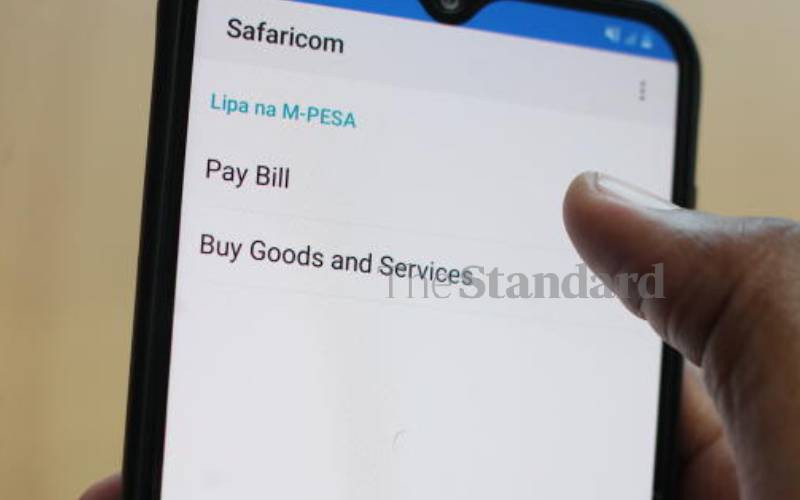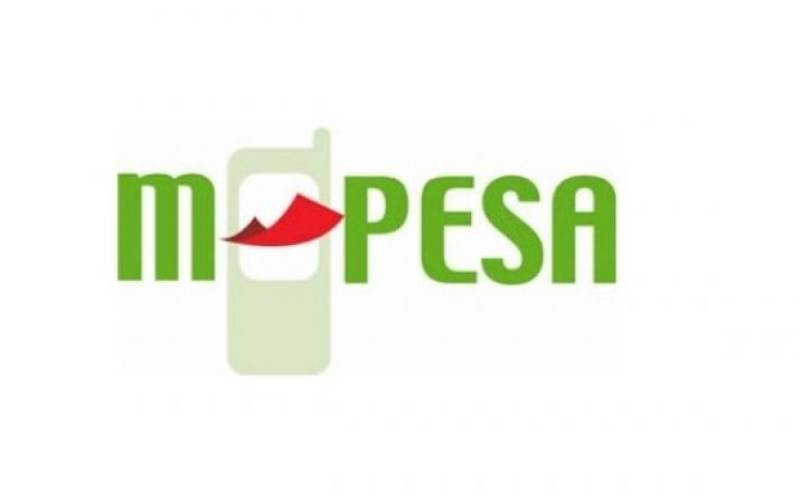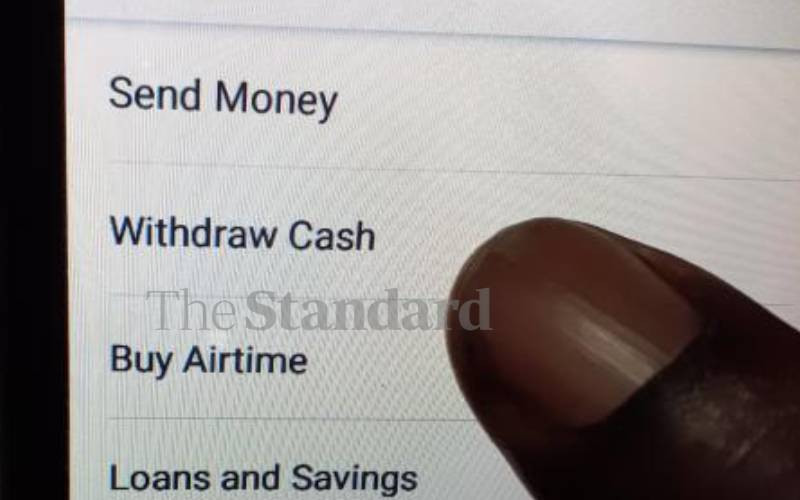
It is on the lips of almost every Kenyan who owns a mobile phone and there is a consensus that M-Pesa has reshaped Kenya’s financial sector.
But the debate on who founded this idea, described by many researchers as “unique, revolutionary and disruptive” refuses to die.
However, Nick Hughes, former employee of Vodafone, the parent company of Safaricom and co-founder of M-Kopa solar, has been hailed for being on the forefront of this “highly contagious” innovation. “Success has a thousand fathers. I know we piloted this and turned it into a business plan and eventually into M-Pesa. Today, I hear people I have never heard of put claim on this product,” Hughes told the Financial Standard.
He acknowledges the mixed reactions but says it should not be surprising considering how successful it is. Mr Hughes first came to Kenya in 2003 as an employee of Vodafone. His assignment at that time was to look for applications of mobile technology that could have positive impact on the society.
In three years to 2004, he was the global executive in charge of corporate responsibility at Vodafone. The Millennium Development Goals were gaining traction and so was the debate on the role of corporates in addressing global issues such as financial inclusion.
“We spend like two years figuring out what the business case was - looking at the technology and it was purely through experimentation that we came up with M-Pesa,” explained Hughes.
Working with a team of researchers and local community, the search for a product to deepen financial inclusion led to a project called Mobile Micro-finance. Then an opportunity came knocking.
The very first platform was built by Hughes team, working with Faulu Microfinance, Commercial Bank of Africa and Safaricom. It was a mobile loan system that allowed customers to take a loan on their mobile phone then repay it later.
“We then entered a competition with UK’s Department for International Development and won £1 million (Sh132 million) for coming up with an innovation to help move money,” says Hughes.
The prize money was supported by Vodafone’s £1 million (Sh132 million) offer to take the idea to the next level.
That got Safaricom’s management into more commitment on the idea. This allowed the team to test the module, build the first platform was to understand the business case.
Bigger opportunity
Subsequently, Hughes said, Vodafone and Safaricom invested billions of shilling to grow the application. “During the pilot phase, we started seeing all the guys involved in the project start sending money to each other. The involvement of just 500 people made us see a bigger opportunity,” reckoned Hughes.
Since the brand was focused on Kenyan culture, the next big step was to pick a name. Options such as M-Pay, M-Cash and Ving came up. “But we wanted a Kenyan name and we picked on M-Pesa because it was resonating well with Kenyan culture,” Hughes told the Financial Standard.
Stay informed. Subscribe to our newsletter
Even when Vodafone later took the platform to India in 2010 as a pilot project in Rajasthan, and then launched it in April 2013, it called it M-Paisa. “In many languages, pesa has association with cash and therefore transferring it to other markets would be easy,” he says.
But getting approval from the Central Bank of Kenya was not easy. The product became a subject of discussion in Parliament considering there was no much legislation around the product. In addition, banks argued that the product was intruding into their space.
At the time of creating the service, Hughes told the Financial Standard that the focus was on making it secure, affordable and convenient.
That time, sending money say to rural areas, involved giving bus drivers or relatives to carry it at small fee, albeit the risks involved. “That was slow, unsafe and costly. We launched M-Pesa under the tag line ‘Send Money Home’ and that was appealing because it immediately told the customers what the product does,” he said.
As at September 2007, just a month before M-Pesa was launched, Communication Authority of Kenya (CA) data showed that the number of mobile subscribers stood at 10.8 million. Hughes admits there wasn’t high level of mobile penetration to argue a strong case for financial inclusion using mobile money transfer service.
However, when Safaricom introduced pay-to-go top ups that allowed customers to buy small quantities of airtime, it opened up the market.
The focus then turned to growing agency network. Hughes, who won the best innovator award in 2010, says the product may look simple but it took six dedicated years of his life.
But having developed the product as an employee of Vodafone, the idea was patented by his employer in 2006. “I was an employee of Vodafone when we developed the product and therefore the intellectual property belongs to Vodafone,” explained Hughes.
The intellectual property law dictates that any creation that an employee comes up with while fulfilling their duty for the employer and using employer’s resources belong to the organisation.
But even with all the success that M-Pesa enjoys - it generated Sh55.1 billion in revenues for the financial year ended March 2017, while serving over 19.7 million active users.
Off-grid customers
In 2009, he left Vodafone and founded M-Kopa solar in 2011, a company that focuses on delivering affordable solar equipment to serve off-grid customers.
Even as connections to the grid increases, he rules out the possibility of his business being phased out.
“The geographical challenges mean that the grid may never reach everybody. Solar will be reliable especially as we talk of green energy,” says Hughes.
The firm that started in Kenya has spread to Uganda and Tanzania and serves over 500,000 customers with products such as solar TV and lighting systems, water tanks and smart phones.
The company rides on M-Pesa to run the business. “We have a commercial arrangement with Safaricom and even do co-branding. M-Kopa allows customers to buy solar energy equipment by paying us small amounts in M-Pesa,” explained Hughes.
Mozambique, Rwanda, Nigeria and DRC Congo are among the potential markets that the company is eyeing.
It has attracted two major private equity firms - Common wealth Development Company and Generation Investment Management - to help it expand.
Hughes wants to diversify into refrigerators and productive assets in agriculture such as grain driers. He rules out getting out of the solar business any soon.
 The Standard Group Plc is a
multi-media organization with investments in media platforms spanning newspaper
print operations, television, radio broadcasting, digital and online services. The
Standard Group is recognized as a leading multi-media house in Kenya with a key
influence in matters of national and international interest.
The Standard Group Plc is a
multi-media organization with investments in media platforms spanning newspaper
print operations, television, radio broadcasting, digital and online services. The
Standard Group is recognized as a leading multi-media house in Kenya with a key
influence in matters of national and international interest.
 The Standard Group Plc is a
multi-media organization with investments in media platforms spanning newspaper
print operations, television, radio broadcasting, digital and online services. The
Standard Group is recognized as a leading multi-media house in Kenya with a key
influence in matters of national and international interest.
The Standard Group Plc is a
multi-media organization with investments in media platforms spanning newspaper
print operations, television, radio broadcasting, digital and online services. The
Standard Group is recognized as a leading multi-media house in Kenya with a key
influence in matters of national and international interest.









